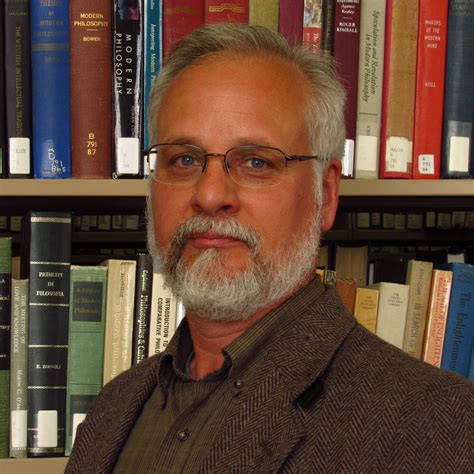A Quote by Martin Luther King, Jr.
The intellectual and moral satisfaction that I failed to gain from the utilitarianism of Bentham and Mill, the revolutionary methods of Marx and Lenin, the social contract theory of Hobbes, the "back to nature" optimism of Rousseau, and the superman philosophy of Nietzsche, I found in the nonviolent resistance philosophy of Gandhi. I came to feel that this was the only morally and practically sound method open to oppressed people in their struggle for freedom.
Quote Topics
Back
Came
Contract
Failed
Feel
Found
Freedom
Gain
Gandhi
Hobbes
Intellectual
Lenin
Marx
Method
Methods
Mill
Moral
Morally
Nature
Nonviolent
Nonviolent Resistance
Only
Open
Oppressed
Optimism
People
Philosophy
Practically
Resistance
Revolutionary
Satisfaction
Social
Social Contract
Sound
Struggle
Struggle For Freedom
Superman
Theory
Utilitarianism
Related Quotes
Look at the great tradition of Western political philosophy. Those people were all immersed in revolutionary movements. Most weren't career academics - often, they were too radical to be accepted in the academy. Rousseau's books were banned. Jeremy Bentham and John Stuart Mill couldn't hold academic positions because they were atheists.
The theory of social contracts extends as far back as Plato. However, it was the great 18th century social philosophers John Locke, Thomas Hobbes, and Jean-Jacques Rousseau who brought the concept of a social contract between citizens and governments sharply into political thinking, paving the way for popular democracy and constitutional republicanism.
[I]t must be emphasized that nonviolent resistance is not a method for cowards; it does resist. If one uses this method because he is afraid or merely because he lacks the instruments of violence, he is not truly nonviolent. This is why Gandhi often said that if cowardice is the only alternative to violence, it is better to fight.
The theory of Marx, Engels, Lenin and Stalin is universally applicable. We should regard it not as a dogma, but as a guide to action. Studying it is not merely a matter of learning terms and phrases but of learning Marxism-Leninism as the science of revolution. It is not just a matter of understanding the general laws derived by Marx, Engels, Lenin and Stalin from their extensive study of real life and revolutionary experience, but of studying their standpoint and method in examining and solving problems.
Critics of Consequentialism have often assumed that hedonism (or preference-satisfaction) must be the theory of the good, that the deontic principle must be maximizing, and that the principle should be applied to individual acts. Indeed, this version is often called "classical utilitarianism" and attributed to Bentham and sometimes even to Mill. Rather than a "classical" view it is a recent construction foisted on to the tradition.
The Consequentialist trinity is typically regarded in this way: Bentham is crude, Mill's writings are full of howlers and inconsistencies, and Sidgwick was too smart to fully embrace Consequentialism. All of these great traditions in moral philosophy express strands of our moral consciousness and they should all be treated as research programs rather than as fully determinate views that can be leveled by a counterexample or by a clever argument.
In our struggle against racial segregation in Montgomery, Alabama, I came to see at a very early stage that a synthesis of Gandhi's method of nonviolence and the Christian ethic of love is the best weapon available to Negroes for this struggle for freedom and human dignity. It may well be that the Gandhian approach will bring about a solution to the race problem in America. His spirit is a continual reminder to oppressed people that it is possible to resist evil and yet not resort to violence.
I would say to anybody who thinks that all the problems in philosophy can be translated into empirically verifiable answers - whether it be a Lawrence Krauss thinking that physics is rendering philosophy obsolete or a Sam Harris thinking that neuroscience is rendering moral philosophy obsolete - that it takes an awful lot of philosophy - philosophy of science in the first case, moral philosophy in the second - even to demonstrate the relevance of these empirical sciences.
Should a reasonable person not demand that philosophy should not be foolishly purveyed before people incompetent to see the point of it, as pearls before swine? For Nietzsche is utterly correct: philosophy is only for the healthy and whole-minded, the sick it has always only made even sicker. By means of philosophy they dig themselves even deeper into their pathetic delusions.
As with Hobbes, we see again, the power of fiction. Rousseau's acount of natural man was no more real than Hobbes's, but following the same pattern, once it became the accepted story of human origins, it thereby exercised the power of a self-fulfilling prophecy. In imagining Rousseau to be right, we have become what Rousseau imagined.
Starting from the very reasonable, but unfortunately revolutionary concept that social practices which threaten the continuation of life on Earth must be changed, we need a theory of revolutionary ecology that will encompass social and biological issues, class struggle, and a recognition of the role of global corporate capitalism in the oppression of peoples and the destruction of nature.



































